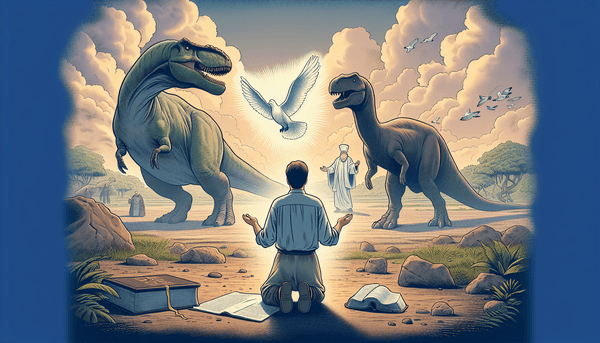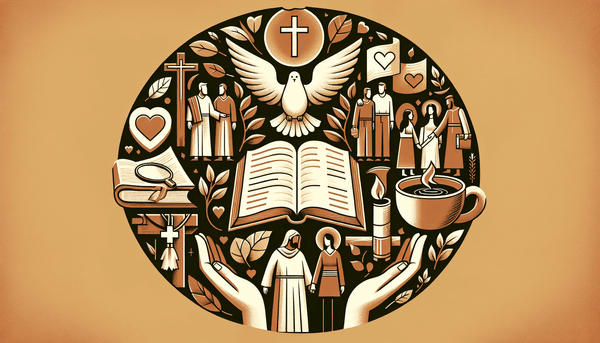Dinosaurs in the Bible
While the Bible does not explicitly mention dinosaurs by name, the descriptions of creatures like Behemoth in the book of Job have sparked discussion among scholars and theologians. The Behemoth, with its 'strength in his loins' and 'force in the navel of his belly' (Job 40:16), may suggest a creature of immense size and power, akin to our understanding of dinosaurs. Similarly, the references to the Leviathan in Job 41 and Psalm 74:14, or the 'great sea monsters' in Genesis 1:21, invite us to ponder whether these passages could be reflections of humanity's encounters with prehistoric giants. The debate is open, as interpretations vary, but these scriptural creatures ignite our imagination about the ancient world and its inhabitants.
Leading a Gentile to the Lord
Leading someone to Christ is a journey that begins with genuine relationship-building. Sharing one's own spiritual journey can profoundly impact others, as personal testimonies reveal how faith in God transforms lives. Inviting someone to a church service or Christian event, where they can witness the love of God firsthand, can be a pivotal experience. Prayer is crucial in this process, trusting that God will 'soften their heart' (Ephesians 4:18) and 'open their eyes' (Acts 26:18). The sharing of the gospel, grounded in scripture and personal testimony, remains central to this mission. Indeed, 'faith comes by hearing, and hearing by the word of God' (Romans 10:17), and thus patience, persistence, and living out one's faith are essential in guiding a Gentile to the Lord.
The Work of the Holy Spirit
The Holy Spirit's work is intricately woven into the fabric of Scripture, from the dawn of creation to the empowering of believers for service. In Genesis 1:2, the Spirit of God 'moved upon the face of the waters,' participating in the creation of the world. The psalmist declares, 'Thou sendest forth thy spirit, they are created: and thou renewest the face of the earth' (Psalm 104:30), acknowledging the Spirit's role in sustaining life. The Spirit also empowers individuals for specific tasks and leadership, as seen when 'the Spirit of the LORD came upon Gideon' (Judges 6:34), and promises believers the power to be witnesses 'unto the uttermost part of the earth' (Acts 1:8). Furthermore, the Spirit guides into all truth (John 16:13) and reveals the deep things of God (1 Corinthians 2:10-11), ensuring that believers are never without divine guidance and wisdom. For those interested in beginning their own spiritual journey and exploring these truths further, this blog post provides a roadmap to understanding the foundations of faith.
The Seven Spirits of God
In the book of Revelation, the 'seven spirits of God' present a complex and symbolic picture of divine completeness and the Holy Spirit's work. These spirits, referenced before the throne (Revelation 1:4) and as seven lamps of fire (Revelation 4:5), might relate to the sevenfold ministry of the Spirit detailed in Isaiah 11:2-3, representing wisdom, understanding, counsel, might, knowledge, fear of the Lord, and delight in fearing the Lord. This symbolism captures the Spirit's diverse roles in the believer's life, from shaping character to imparting gifts for service. The manifestation of the Spirit at Pentecost (Acts 2:1-4) and the assurance of our adoption as God's children (Romans 8:14-17) further illustrate the Spirit's vital presence in the Christian faith.





